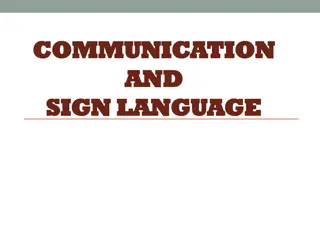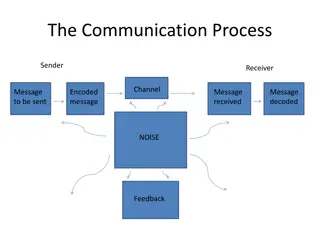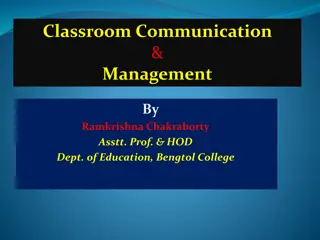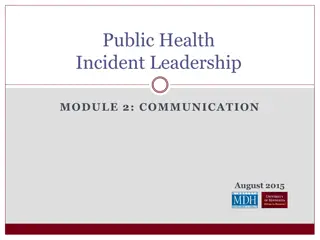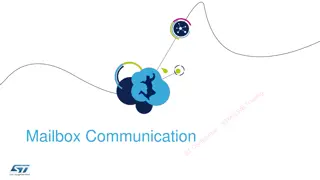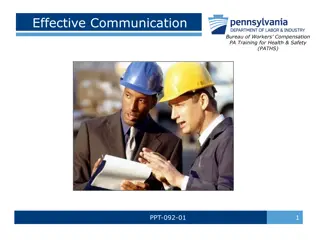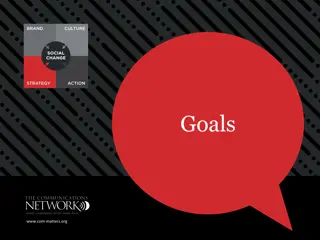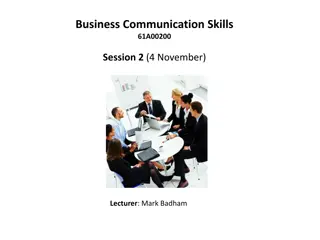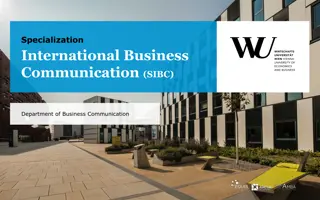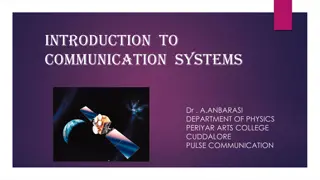
Creating Effective Teams for Project Success
Enhance project success by understanding the importance of team dynamics, communication, and effective management. Learn how to build well-rounded teams, improve communication, and foster trust to achieve optimal results.
Download Presentation

Please find below an Image/Link to download the presentation.
The content on the website is provided AS IS for your information and personal use only. It may not be sold, licensed, or shared on other websites without obtaining consent from the author. If you encounter any issues during the download, it is possible that the publisher has removed the file from their server.
You are allowed to download the files provided on this website for personal or commercial use, subject to the condition that they are used lawfully. All files are the property of their respective owners.
The content on the website is provided AS IS for your information and personal use only. It may not be sold, licensed, or shared on other websites without obtaining consent from the author.
E N D
Presentation Transcript
Working in and creating Effective Teams Dr Simon Brown www.drsimonb.co.uk
If you want to succeed People are more motivated and happy when they are performing and working in a way that is natural to them. Expecting a person with a particular personality type (be it represented by a Belbin team role, a Jung psychological type, a Myers Briggs MBTI, or whatever) to perform well and enthusiastically in a role that is foreign or alien to their natural preferences and strengths is not helpful for anyone. http://www.teamtechnology.co.uk/mmdi-re/mmdi-re.htm http://www.belbin.com/
Why is this important? Projects are dependent upon people to succeed. Convincing the client that you have a well formed team often adds robustness to your proposal (one person, however capable, might fall under a bus ..) because a team should have people with complementary skills and abilities is better able to cope with peaks and troughs in demand/workload (flexibility) builds up broader experience which can be shared between team members and passed on to new ones Can cope with a person leaving; it isn t so disastrous, teams can renew and re-invigorate themselves through recruitment often works synergistically, achieving more together than the individuals could do on their own (creativity and innovation)
But managing teams means Being able to: Delegate Communicate Co-ordinate effectively
But how do we know if we have the right team membership? The first thing you should think about is how the members of the team communicate? When you get together do you talk things like the football, ask how the weekend went, talk about Eastenders or Corrie? If this is how you communicate then you are working at the lowest level known as Ritual and Clich to be effective you need to learn to communicate better.
Improving your communication To improve your communication you have to learn to trust each other more. The next level which is the minimum you should be working at now is the level where you exchange information about the work you are doing. You may even feel comfortable to engage in some form of gossip. This level will allow you to at least finish the project
Getting better The next level of communication involves you opening up to each other in your group. This requires you to trust the other members to not put you down or make you feel bad. Here you exchange ideas and make judgements of the ideas your team develop. If you are working at this level then your group work will be good.
Probably as good as you can get Some of you will get to the next level of group work. Here the group has high levels of mutual trust and respect and are comfortable to share.. Your emotions and feelings. This is not a place to be if you are not comfortable with the team as this exposes your innermost feelings and needs high levels of trust. If you are here then your team will be working at the most effective level
The ultimate level This level won t often be achieved. It is typically the level found by couples that have been together for a long time Or as I found out recently groups of soldiers who have fought through a long and dangerous posting in Iraq or Afghanistan Here communication becomes instinctive and you have total trust in the other person(s)
An activity for the team to do Read the hand outs and reflect You should identify the stage of development a team you work in is operating at.
Stage 1 Characteristics of a team that has just started or is working at the lowest level. You; Don t deal with the feelings of any members Restrict being together to just dealing with work Don t rock the boat Don t listen very well Don t have very clear objectives Don t feel very involved Don t really feel very good about the project Are happy for somebody else to lead or make decisions
Stage 2 Have you moved on from stage 1 and do you; Raise ideas and suggest experimentation Debate risky issues and open up the debate to everybody Talk about how you are feeling about the project Express concern for those who may be struggling Listen to what is said and respond appropriately Not stop the discussion when it gets uncomfortable?
Stage 3 If you have achieved stage 2 but have you; Begun to introduce a more methodical approach to your working Established procedures for the team and members Agreed on some mutually acceptable ground rules for the team.
Stage 4 As good as it gets......the team and its members operate; Highly flexibly Leadership moves around the team as the project develops You are all putting in maximum effort You continually review how you operate and adjust as needed Everybody feels fully involved and valued You see the project as a development opportunity
So where are you? Looking at the various stages of development where is your team? Thinking about the communication level that you operate at? Could you get your team to agree on where you are and whether you want to develop?
If you want to develop You should identify then combine Your individual strengths and weaknesses To improve The internal relationships The atmosphere in the team The leadership style you bring to the team
Effective Teams demonstrate High levels of Mutual trust Mutual respect Mutual support


